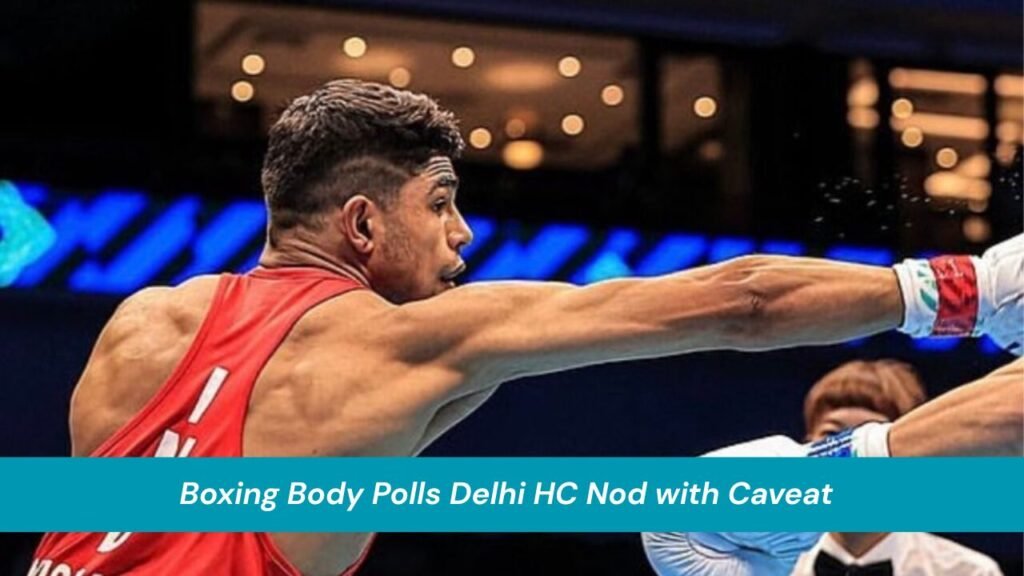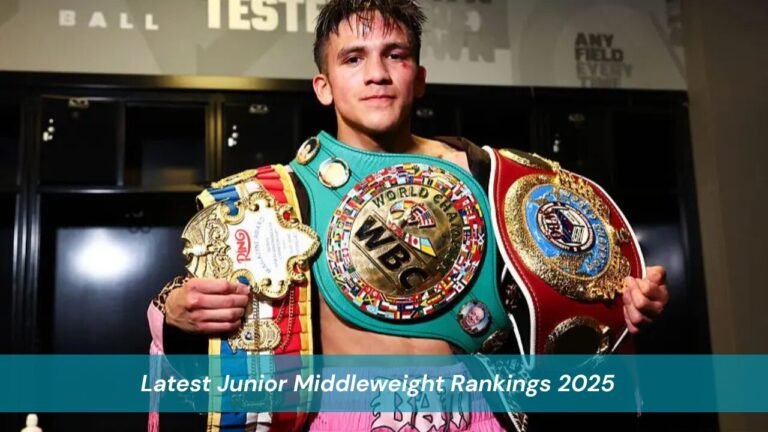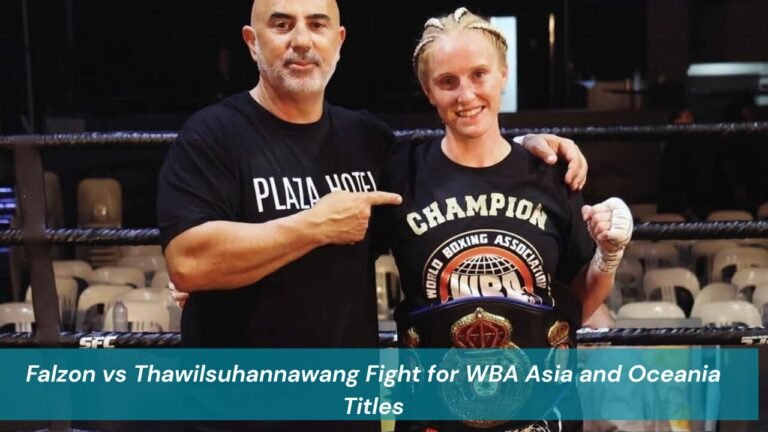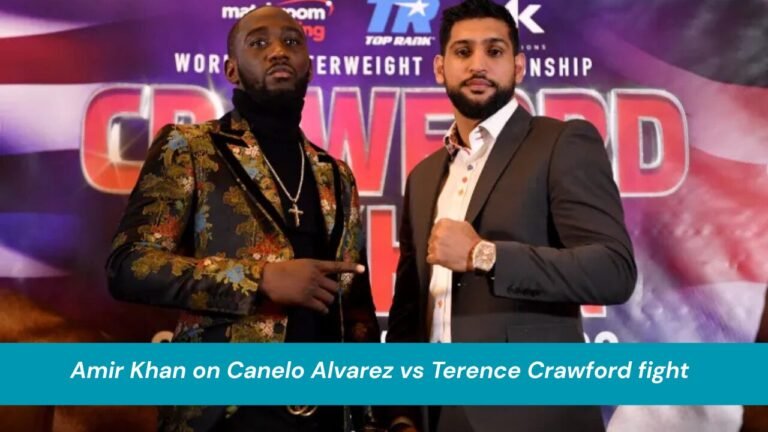The governance of Indian boxing has once again become a subject of national debate, drawing in state associations, sports administrators, and the judiciary. In a ruling that may define the trajectory of the Boxing Federation of India (BFI) for years to come, the Delhi High Court has allowed the long-delayed boxing body polls to go ahead on August 21. Yet the court was careful not to give the green light without conditions. It attached a vital caveat: the results of the elections will remain subject to the outcome of multiple petitions filed by various state units challenging both the amended constitution and the process that governs these polls.
This dual approach allowing the polls to proceed while leaving their validity open to review illustrates the court’s awareness of the fragile balance between maintaining international commitments and ensuring lawful governance. Elections are essential for India’s boxing federation to restore normalcy, particularly with international tournaments looming. But they cannot come at the cost of transparency, inclusivity, or fairness. The High Court’s intervention underscores the principle that democratic processes must be conducted within the framework of law, not outside of it.
Key Takeaways
- Delhi High Court allowed Boxing Federation of India (BFI) elections to proceed on August 21, with results conditional on pending legal petitions.
- Controversy arose due to March circular limiting voting rights and interim body amending BFI constitution without full consultation.
- Court emphasized transparency, fairness, and adherence to law, balancing immediate governance needs with accountability.
- Governance disputes directly impact athletes’ training, funding, international participation, and India’s standing in global boxing.
The Events Leading to the Legal Battle
The roots of the current dispute stretch back to March of this year. On March 7, the BFI issued a controversial circular that dramatically altered the landscape of its electoral process. The circular stated that only elected members of state associations would be eligible to cast votes in the federation’s elections. This immediately triggered resentment among several associations, which viewed the decision as exclusionary and undemocratic. Associations from Delhi, Madhya Pradesh, Gujarat, and Himachal Pradesh quickly approached the courts, arguing that the new rules curtailed their legitimate rights and undermined the federal structure of the sport.
Parallel to these developments, the BFI had been operating under the stewardship of an interim body led by Ajay Singh, who is also the chairman of SpiceJet. This committee introduced amendments to the federation’s constitution, claiming that the changes would modernize governance and align the federation with international standards. Yet these amendments were also a point of contention. Many stakeholders contended that such sweeping reforms could not be implemented by an interim authority and certainly not without broader consultation and ratification by the federation’s members.
Thus, by early summer, the stage was set for a full-fledged legal confrontation. Multiple state associations challenged both the March circular and the amended constitution, urging the Delhi High Court to step in and protect the democratic character of the federation. The Sports Ministry’s model guidelines for federations, which emphasize inclusivity and transparency, were also invoked as benchmarks that the BFI was allegedly flouting.
The Court’s Decision and Its Conditional Nature
On August 18, the Delhi High Court delivered a crucial ruling. The court recognized that the elections, scheduled for August 21, were necessary to bring stability to the administration of boxing in India. Without elections, the interim arrangement would drag on indefinitely, potentially weakening India’s standing in international boxing bodies and jeopardizing athletes’ participation in tournaments. For this reason, the court decided that the boxing body polls should not be stalled.
However, the court was careful not to rubber-stamp the process. It attached a significant caveat: the elections would be subject to the outcome of the pending petitions. In other words, while the voting could proceed as planned, its results would carry no presumption of finality. If the High Court eventually finds that the amended constitution or the election process violates either the law or the principles of natural justice, the polls can be nullified in whole or in part.
The court went further to emphasize that no special equity would attach to the newly elected executive. This means that even if a leadership team is chosen on August 21, it cannot claim legitimacy merely on the basis of having been elected. Their authority would remain conditional until the court delivers a final judgment. By taking this stance, the court avoided derailing the immediate electoral process while keeping open the possibility of judicial correction if flaws are proven.
The Larger Significance for Sports Governance
This ruling is significant not just for boxing but for the governance of Indian sports in general. At its heart, the judgment reinforces a principle that has been neglected too often in the country’s sporting ecosystem: transparency must be as important as expediency. Allowing elections ensures continuity, but attaching conditions safeguards integrity.
Transparency matters because sports federations do not operate in isolation. They are responsible for athletes who represent India at international levels, and poor governance can have tangible consequences. In fact, India has already seen how administrative chaos can harm its athletes. Wrestling has been mired in controversy over allegations against its leadership, while hockey and football federations have also faced intervention from both courts and the government. These cases demonstrate that governance disputes are not academic they directly affect the training, funding, and global participation of athletes.
The Delhi HC’s insistence that polls go ahead but remain under scrutiny signals to all federations that governance cannot be treated as a private fiefdom. It must align with democratic values, constitutional propriety, and international best practices.
The Stakes for Indian Boxing and Its Athletes
For Indian boxing, the stakes could not be higher. The sport has been one of India’s most consistent medal contributors at global events, including the Olympics and World Championships. Any delay in settling governance issues risks disrupting preparations for major tournaments. Boxers require stable administrative backing for funding, travel clearances, coaching appointments, and participation in international events. An unstable federation could jeopardize these crucial elements.
The involvement of World Boxing, the international body formed after the decline of the International Boxing Association (IBA), adds another layer of complexity. World Boxing has been monitoring the situation in India closely, as the outcome of the elections will determine whether the country maintains smooth relations with the global governing structure. A botched or legally invalid election could compromise India’s influence within the global boxing community, while a fair and transparent one could solidify its standing.
Thus, while the HC’s ruling may seem procedural, its implications reach far beyond courtroom debates. For athletes training to compete on the global stage, it is about whether their federation can provide stable and lawful governance.
Challenges Highlighted by This Case
The controversy surrounding the boxing body polls highlights deeper structural issues within Indian sports governance. One recurring challenge is the tension between governance and representation. Should only elected state unit members have voting rights, or should other stakeholders also have a say? Restricting the electorate may ensure accountability, but it also risks excluding legitimate voices, as the current dispute shows.
Another challenge is the authority of interim committees. An interim body is, by definition, temporary. Its mandate is to maintain continuity, not to make sweeping constitutional changes. Yet in this case, the interim panel introduced amendments that fundamentally altered the federation’s structure. Critics argue that such moves exceed the mandate of an interim committee and undermine the federation’s democratic ethos.
Finally, the case highlights the delicate balance between judicial oversight and autonomy. Courts must ensure that federations operate within the bounds of law, but they must also avoid micromanaging sports bodies. The Delhi HC’s conditional approval is a nuanced attempt to strike this balance. By allowing elections but keeping them under review, the court has respected both autonomy and accountability.
Possible Futures After the Elections
What happens after the August 21 elections will depend largely on how the High Court rules on the pending petitions. If the court validates the constitution and election process, the newly elected executive will continue without legal obstacles. If the court finds certain procedures invalid, it may order partial remedies, such as re-elections for specific posts or amendments to certain rules. In the most extreme scenario, the court could quash the elections entirely, forcing a fresh start under court-monitored guidelines.
Each of these possibilities carries different implications. Validation would stabilize the federation quickly, allowing it to focus on athlete development and international representation. Partial remedies would create temporary uncertainty but ultimately lead to a more robust structure. A complete invalidation would be disruptive in the short term but could also set a powerful precedent for future governance standards across Indian sports federations.
Expert and Athlete Perspectives
Legal experts have welcomed the court’s cautious approach, noting that it avoids unnecessary delays while still ensuring accountability. Sports lawyers point out that the High Court’s reasoning is consistent with earlier interventions in wrestling and hockey, where elections were allowed but subject to further review.
Former boxers and coaches have expressed frustration that governance disputes continually overshadow athlete needs. They argue that administrative fights drain attention and resources that should instead be directed towards training camps, exposure trips, and infrastructure. From their perspective, the HC’s decision at least prevents indefinite delays, which would have been devastating for athletes preparing for international events.
State associations remain divided. Those challenging the process view the ruling as a partial victory, since it keeps alive their case against the March circular and constitutional amendments. Others see it as a pragmatic way forward, since it allows the federation to move ahead without indefinite paralysis.
FAQs
Why did the Delhi High Court allow the boxing body polls but add a caveat?
The court permitted the polls to avoid delays in federation governance but warned that results could be nullified if procedural flaws are proven.
Can the results of the August 21 elections be overturned?
Yes. The HC made it clear that the new executive holds no special equity and results remain subject to pending petitions.
What role did World Boxing and the IOA play in the process?
World Boxing approved the election schedule, while the Indian Olympic Association monitored compliance with national guidelines.
How do these disputes affect Indian boxers?
Legal wrangles disrupt funding, exposure trips, and training, leaving athletes uncertain about their international participation.
Conclusion
The Delhi High Court’s conditional approval of the boxing body polls is more than a procedural order; it is a statement on the principles that should guide sports governance in India. Elections are necessary to restore normalcy, but they cannot come at the expense of transparency or fairness. By allowing the polls yet keeping their validity open to review, the court has attempted to safeguard both continuity and accountability.
For athletes, the outcome of this saga will directly affect their ability to compete and succeed on the global stage. For administrators, it is a reminder that governance is not merely about power but about responsibility. And for the broader Indian sporting community, it is a signal that democratic values and lawful procedures cannot be sidelined, even in the name of expediency.
As the August 21 elections approach, all eyes will remain on how the High Court eventually rules on the pending petitions. Boxing depends not just on the strength of its athletes but also on the integrity of the institutions that govern them.




